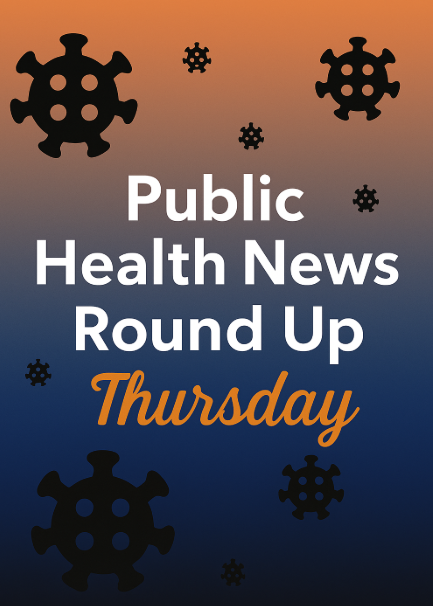
Next Week in Public Health, November 13, 2025
After a record-breaking 43-day shutdown, the federal government has finally reopened following President Trump’s signature on a long-delayed funding package. While political leaders traded blame, the public health consequences were immediate and far-reaching. Food assistance for more than 40 million Americans stalled, and some families ran out of resources entirely. Meanwhile, federal workers across essential agencies, including those safeguarding air travel, went weeks without pay. Even with the government back online, the ripple effects continue: nearly 1,000 flights were canceled, air traffic control systems remain strained, and economic data gaps from the shutdown may permanently affect the understanding of key indicators, such as employment and inflation.
The legislation restores SNAP funding through September, reinstates laid-off federal employees, and guarantees back pay, but it leaves major unresolved issues ahead. Notably, Democrats were unable to secure an extension of Affordable Care Act premium subsidies, putting more than 20 million Americans at risk of sharply rising health insurance costs next year.
😑
As federal agencies race to restart operations, public health practitioners are once again reminded how political dysfunction can threaten the basic systems of food assistance, safety regulation, and health coverage that millions rely on.
So, here’s what in the science and what’s in the news


CMS Releases CY 2026 Medicare Physician Fee Schedule Final Rule
Starting January 1, 2026, the Centers for Medicare & Medicaid Services (CMS) will implement new payment rules, including adjustments to Medicare rates and enhancements to quality programs. Notable changes include differentiated payment rates for office and hospital settings, an expanded telehealth service list, and performance-based payment models for specialists.
Why the conspiratorial right rallied around a flock of ostriches
The Canadian government, following a protracted legal and social media battle, culled hundreds of ostriches from Universal Ostrich Farms due to an outbreak of H5N1 avian influenza. This decision reflects concerns about managing a potential pandemic threat and maintaining biosecurity, despite protests highlighting distrust in government control.
The number of whooping cough cases in Texas is the highest it’s been in 11 years
Summary: Texas has reported over 3,500 cases of whooping cough this year, marking an 11-year high, largely due to declining vaccination rates. With the holiday season approaching, health officials urge vaccinations and precautions like hand washing to prevent further spread.



